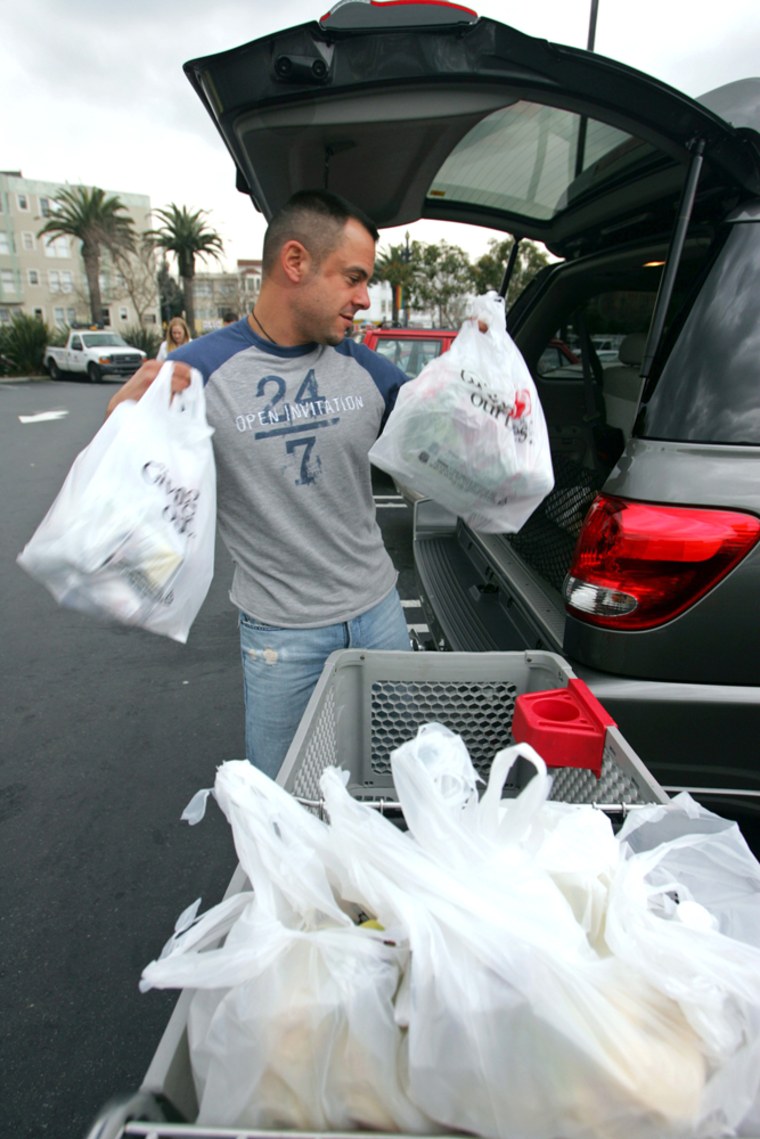City officials are considering a proposal to slap a 17-cent surcharge on paper or plastic shopping bags, a debate sure to be watched as a bellwether for other communities across the United States.
While no other U.S. city imposes a shopping bag tax, such a strategy has been successfully employed in the nations of Ireland, South Africa, Bangladesh, Australia, Shanghai and Taiwan.
If approved by the city’s Board of Supervisors, the fee would apply only to grocery stores that report more than $2 million in annual sales. Other stores could eventually be targeted.
Mayor Gavin Newsom and Supervisor Ross Mirkarimi introduced a resolution Tuesday requesting a more detailed study on how much the city pays to collect and dispose of paper and plastic sacks.
Such a study is required before the city can legally impose the fee, and the research will help determine the precise charge, Mirkarimi said. The study should be published by April 30.
San Francisco shoppers bring home about 50 million bags each year, according to an environmental study. The city uses 90 percent plastic, 10 percent paper, so the problem is largely plastic.
Environmentalists say plastic bags jam machinery, pollute waterways, suffocate wildlife, use up finite supplies of fossil fuels and often end up as eyesores in trees or bushes.
They add that when it comes to paper, 14 million trees a year are needed to make 10 billion paper grocery bags nationwide.
Opposition argument
Grocers, bag manufacturers and trade groups say many people already reuse their plastic bags. Other opponents call the plan an unfair and regressive tax on shoppers.
Plastics industry groups oppose the measure and dispute some of the statistics used by San Francisco officials.
Donna Dempsey, an official at the Society of the Plastics Industry, said, for example, that a San Francisco Environment Department claim that the United States uses 12 million barrels of oil annually to make 30 billion plastic bags is just wrong.
Instead, she gave a figure of one million barrels of naphtha, a petroleum derivative.
'Think outside the bag'
During a meeting Tuesday evening of San Francisco’s Commission on the Environment, a stream of residents — many toting canvas bags — expressed their support for the tax proposal.
“As consumers, we need to think outside the bag,” said Jim Rhoads of the Haight Ashbury Neighborhood Council, one of several residents who praised the commission.
The environment commission says the 17-cent figure represents an estimate of the costs to the city to clean up and dispose of each plastic bag.
“We would be setting a trend, certainly, of a city of our size to be issuing this kind of supplantation of plastic bags for an alternative, something more environmentally friendly,” Mirkarimi said.
State legislature might consider
California state legislators may also consider the issue later in the year. Assemblyman Paul Koretz said he was considering new legislation aimed at reducing the amount of overall packaging American consumers use, although a similar bill of his did not even get out of committee two years ago.
“Bag fees are working in Ireland, Australia, Taiwan, Bangladesh and other places,” he said in an interview. “Far too many producers and retailers only consider price and consumer convenience in their packaging decisions and leave the public to foot the bill.”
Ireland, for one, imposed a 15-cent fee per bag in 2002. Shoppers in other countries such as Russia have long relied on bringing their own fishnet bags and even shopping strollers to haul home groceries and other goods.
